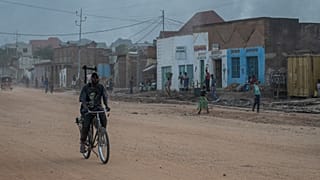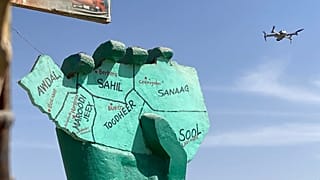Business Africa
Africa CEO Forum 2025: Navigating Energy, AI, and Infrastructure for Africa's Future
Held on May 12–13, 2025, in Abidjan, the 12th edition of the Africa CEO Forum brought together over 2,800 leaders, including six African heads of state, to deliberate on the continent's development trajectory. Key discussions centered on energy strategies, technological advancements, and infrastructure development.
Nuclear Energy: A Strategic Pillar for Africa's Development
At the Africa CEO Forum 2025, nuclear energy emerged as a focal point in discussions about Africa's energy future. Loyiso Tyabashe, CEO of South Africa's Nuclear Energy Corporation (Necsa), emphasized the necessity of integrating nuclear power with renewable sources to ensure a stable and affordable energy supply.
"Nuclear provides baseload power essential for industrialization," Tyabashe stated. He highlighted the cost-effectiveness of nuclear energy, citing South Africa's experience with its two nuclear units in Cape Town as among the cheapest electricity sources. Moreover, he underscored the environmental responsibility of nuclear power in reducing carbon emissions.
Addressing concerns about radioactive waste, Tyabashe assured that Necsa has maintained comprehensive records of all waste since the operation of its research reactor in 1965 and power reactor in 1984. "We can account for all the waste we've produced," he affirmed.
The potential of Small Modular Reactors (SMRs) was also discussed. Tyabashe noted that SMRs promise quicker deployment and lower capital costs, making them suitable for countries with smaller power grids. "It's not a one-size-fits-all; we need to match generation technology to each country's grid stability," he explained.
Looking ahead, Necsa plans to develop nuclear fuel from raw uranium, leveraging South Africa's and the continent's uranium resources. Additionally, the corporation aims to build SMRs and explore multiple applications of research reactors, including power generation and isotope production for medical use.
The forum's discussions reflected a growing consensus on the role of nuclear energy in Africa's sustainable development. A poll conducted during the event indicated that 73% of attendees viewed nuclear as a viable energy solution for the continent.
Artificial Intelligence: Crafting Africa's Regulatory Framework
As artificial intelligence (AI) reshapes global economies, Africa seeks to establish its own regulatory pathways. At the forum, experts debated models suitable for the continent, balancing innovation with sovereignty and local realities.
Franck Kié, founder of the Cyber Africa Forum, highlighted the progress made: "Several countries, including Benin and Rwanda, have adopted national AI strategies. The African Union also initiated a continental approach in 2024."
Catherine Muraga from Microsoft Africa Development Center emphasized inclusivity: "We're developing tools in Kiswahili, Amharic, Yoruba... to ensure no one is excluded. Africa has nearly 2,000 languages." She stressed that responsible AI involves integrating security and privacy from the design phase.
The consensus underscored the urgency for Africa to accelerate its governance and investments in AI to avoid dependency on foreign technological decisions.
Infrastructure: The Backbone of Africa's Industrialization
Infrastructure development remains pivotal for Africa's industrial growth. At the forum, discussions centered on enhancing logistics, energy access, and connectivity to transform value chains.
Mohammed Diop, Deputy CEO Africa for AGL, pointed out the challenges: "In Africa, up to 30-40% of products are lost at the farm gate. We're working on projects in Senegal and other countries to establish specialized warehouses near farms to reduce agricultural losses."
Private sector initiatives, like AGL's annual investment of €600 million in Africa, showcase the commitment to infrastructure improvement. However, energy remains a significant hurdle. In response, Schneider Electric signed strategic agreements with 3MD Energy and SmartEnergy to develop local industrial electrification solutions, integrating local production and digitalization.
These partnerships aim to secure energy access and generate employment, aligning with the objectives of the African Continental Free Trade Area (AfCFTA) to boost intra-African trade. For sustainable industrialization, states must streamline regulations, attract financing, and connect remote areas, ensuring that Africa fully leverages its resources.





![Can Uganda leverage oil to turn around economy? [Business Africa]](https://images.euronews.com/articles/stories/09/59/88/52/320x180_cmsv2_236e5c53-1dab-5e80-8bb6-ce828be63e24-9598852.jpg)
![Global aircraft parts shortage grounds African airlines [Business Africa]](https://images.euronews.com/articles/stories/09/60/55/34/320x180_cmsv2_2c48d2fc-7517-58c3-aaa1-2a6ee853cd72-9605534.jpg)
![Africa's economy to expand in 2026 despite risks [Business Africa]](https://images.euronews.com/articles/stories/09/59/18/91/320x180_cmsv2_a090e29c-4edc-5b24-a887-6dea31e3ec4e-9591891.jpg)






00:51
Nigeria to revise inflation reporting after artificial spike expected in December
01:13
Construction gets underway in Ethiopia on 'Africa's biggest airport'
01:00
Robots wow crowds at Consumer Electronics Show in Las Vegas
00:18
Zambia withdraws request for IMF loan extension
01:00
AI takes center stage at Consumer Electronics Show 2026 in Las Vegas
01:49
Cape Town rental boom pushes low-income residents Into illegal housing